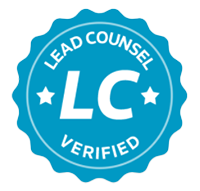Hospital Negligence Lawyers
Holding Hospitals Accountable When Medical Care Goes Wrong
The Law Office of Miller & Gaudio PC provides aggressive legal representation for victims of hospital negligence throughout New Jersey. When hospitals fail to deliver proper care and patients are harmed as a result, our experienced medical malpractice attorneys help victims and families obtain justice and fair compensation.
Hospital negligence can lead to severe, life-changing injuries or even wrongful death. In these situations, patients and their families need clear answers, experienced guidance, and committed advocacy. Our firm is here to provide all three.
Understanding Hospital Negligence
What Is Hospital Negligence?
Hospital negligence occurs when a healthcare facility, or someone acting on its behalf, fails to meet an appropriate standard of care. This failure results in preventable harm to a patient. Unlike ordinary accidents or complications, negligence involves a deviation from how a reasonably skilled hospital or provider would have acted in similar circumstances.
Negligence vs. Honest Mistakes
It’s important to distinguish between unfortunate outcomes and true negligence. Hospitals are not automatically liable for all adverse events. However, if injury results from poor staffing, miscommunication, failure to follow procedures, or failure to act in a timely and reasonable manner, the hospital may be held accountable.
Common Examples of Hospital Negligence
1. Emergency Room Errors
Emergency departments are high-pressure environments where quick decisions must be made. Errors such as delayed diagnosis, improper triage, or failing to admit a patient in distress can constitute negligence.
2. Surgical Mistakes
Surgical errors remain among the most devastating forms of hospital negligence. These may include wrong-site surgery, retained surgical instruments, anesthesia errors, or post-operative monitoring failures.
3. Failure to Monitor Patients
When nurses or hospital staff fail to properly track a patient’s vital signs or changes in condition, the results can be fatal. This is especially dangerous for high-risk patients recovering from surgery or suffering from chronic conditions.
4. Medication Errors
Giving the wrong medication, administering an incorrect dosage, or failing to account for drug interactions can all lead to catastrophic outcomes.
5. Infection Control Failures
Hospitals are expected to adhere to strict sanitation protocols. Unsanitary conditions, improper wound care, and failure to isolate infectious patients can lead to serious hospital-acquired infections.
6. Discharge Mistakes
Premature or poorly managed discharges may place vulnerable patients at risk. If a hospital sends a patient home without proper instructions, follow-up, or medications, it can result in rapid deterioration of health.
Serious Injuries Caused by Negligent Hospital Care
Physical Harm
Negligent care often leads to permanent physical injuries. These may include brain damage from oxygen deprivation, sepsis or amputation due to infection, paralysis from undiagnosed spinal issues, or internal injuries from surgical errors.
Psychological Impact
Many patients experience long-term emotional and psychological trauma following negligent treatment. Anxiety, depression, and PTSD are common outcomes, particularly if the patient experienced pain, fear, or disfigurement.
Worsening of Pre-existing Conditions
In some cases, the negligence doesn’t introduce a new condition but worsens a current one. For example, a delay in treating a stroke or heart attack can mean the difference between full recovery and permanent disability.
Wrongful Death
When hospital negligence leads to the death of a loved one, the loss is both emotional and financial. Families may be eligible to pursue a wrongful death claim, which compensates for lost companionship, funeral costs, and lost income.
Determining Liability in Hospital Negligence Cases
Who Can Be Held Liable?
Hospitals may be liable for the actions of their employees, such as nurses, aides, in-house physicians, and technicians. In some cases, they may also be held accountable for policies or systemic failures that contributed to the harm.
Hospital Employees vs. Independent Contractors
One legal complication arises when doctors are not technically employees of the hospital. Many physicians are independent contractors. In such cases, determining liability requires close examination of hospital policies, how the provider was presented to the patient, and whether the hospital exercised control over their work.
Institutional Negligence
Hospitals may also be liable for institutional negligence. Examples include failure to conduct background checks on staff, ignoring patient complaints, not enforcing safety procedures, or failing to maintain adequate staffing levels.
How to File a Hospital Negligence Claim in New Jersey
- Start by Gathering Evidence
If you believe hospital negligence occurred, it’s important to document everything. Request copies of your medical records, note dates and names of staff involved, and preserve any communications with the hospital.
- Affidavit of Merit Requirement
New Jersey law requires that your claim be supported by an affidavit of merit. This means a licensed physician must review the case and confirm that the care provided likely deviated from accepted medical standards.
- Timeline for Filing
The statute of limitations in New Jersey for medical malpractice cases is generally two years from the date of injury or the date the injury was discovered. There are some exceptions, especially in cases involving minors or wrongful death, but acting quickly is essential.
- The Legal Process
Once a claim is filed, it proceeds through investigation, discovery, depositions, potential settlement negotiations, and, if necessary, trial. At every step, our attorneys handle the legal complexities while keeping you informed and involved in key decisions.
What Compensation Can Victims Recover?
Medical Expenses
This includes the cost of past treatments and anticipated future medical needs, including surgeries, physical therapy, and long-term care.
Lost Wages and Earning Potential
If the injury prevented you from working or diminished your ability to earn in the future, compensation may cover both immediate and ongoing financial loss.
Pain and Suffering
Non-economic damages compensate for physical pain, emotional distress, and loss of enjoyment of life caused by the injury.
Loss of Consortium
In wrongful death or severe injury cases, spouses and family members may seek compensation for the loss of love, support, and companionship.
Punitive Damages
In extreme cases where the hospital’s behavior is found to be reckless or grossly negligent, punitive damages may be awarded to punish the institution and deter similar behavior.
Why Choose The Law Office of Miller & Gaudio PC?
Experience and Results
With over 35 years of experience representing injured patients, our firm has a deep understanding of hospital systems, medical protocols, and how to challenge large healthcare institutions in court.
Medical Knowledge and Resources
We work closely with respected medical experts and forensic professionals to build the strongest possible case. This allows us to understand what went wrong and how to prove it.
Commitment to Clients
You are not just a case number. We provide personalized attention and transparent communication. From your first call to the resolution of your claim, we stand by your side with compassion and dedication.
Reputation for Excellence
Our firm has secured significant settlements and verdicts in complex medical negligence cases. We are known throughout New Jersey for our tenacity, integrity, and courtroom skill.
Frequently Asked Questions About Hospital Negligence
What qualifies as hospital negligence?
Hospital negligence occurs when a hospital or its staff fails to meet an accepted standard of medical care, resulting in harm to a patient. Common examples include misdiagnosis, surgical errors, medication mistakes, failure to monitor, delayed treatment, and unsanitary conditions that cause infection. To qualify as negligence, the harm must be directly linked to a preventable breach in care.
Can I sue a hospital if a doctor made a mistake?
It depends. If the doctor is an employee of the hospital, the hospital may be liable for their actions. However, many doctors are independent contractors. Even in those cases, the hospital may still bear responsibility if it allowed an unqualified doctor to practice or failed to supervise appropriately. An attorney can help determine the correct parties to include in your claim.
What is the deadline for filing a hospital negligence lawsuit in New Jersey?
In most cases, the statute of limitations in New Jersey is two years from the date of the injury, or two years from when the injury reasonably should have been discovered. There are exceptions, especially in cases involving children or wrongful death. Acting promptly is crucial to protect your rights.
Does signing a consent form mean I cannot sue?
No. While consent forms acknowledge that certain risks are inherent in medical procedures, they do not waive your right to sue if the care you received was negligent. Consent does not protect hospitals from liability for preventable errors or substandard treatment.
What compensation can I recover in a hospital negligence case?
You may be entitled to compensation for medical expenses, future treatment costs, lost income, reduced earning capacity, pain and suffering, emotional distress, disability, and in some cases, punitive damages. Families of deceased patients may also seek wrongful death damages, including funeral expenses and loss of companionship.
Contact The Law Office of Miller & Gaudio PC Today
If you or a loved one has been harmed due to negligence in a hospital, we can help. The Law Office of Miller & Gaudio PC offers free, confidential consultations to review your case and explain your legal options. There is no obligation, and you owe nothing unless we recover compensation on your behalf.
Contact us today to schedule your consultation. We are here to protect your rights, fight for accountability, and help you move forward with confidence.


